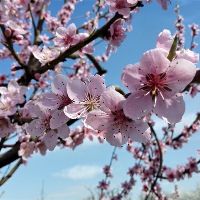Topic content:
Read the following classical Chinese and complete the topic.
Real and famous articles
Yan Zhitui
Name and reality are like shape and shadow. If virtue and skill are good, then name will be good; If your face is beautiful, your shadow will be beautiful. Today, those who do not cultivate their morality but seek to be famous in the world will look very evil and blame their shadow in the mirror.
I see the world, clear name and golden shell to enter, the credibility is obvious but promise loss. The truth and falsehood of human beings are all in the heart, and there is no trace of them, but they are not familiar with them. First, I learned from the observation that it is better to be honest than skillful. I am ashamed to accept it. Bo Shi gave way to Qing, and Wang Mang resigned from politics. When he was there, he was tactful; It is written by later generations and passed down from generation to generation. There is a great nobleman in the near future. He speaks with filial piety, and lives in mourning in front of and behind. It is enough to destroy the system of mourning. Tasting it in the tarpaulin and smearing it on your face with croton will make you sore and show your crying. Left and right children stand up ①, which cannot be concealed. It is beneficial for outsiders to say that they live and eat, which is unbelief. A man who loses all sincerity with one fake is greedy for fame and will not die.
There was a scholar family who had only read two or three hundred books. He was dull and clumsy, but his family was rich and elegant. He often treasured wine and gave it to famous people. Those who were willing to give it to him boasted. The imperial court thought it was elegant, but it also tried to leave the country for employment. Han Jinming, the king of Donglai, was fond of literature and doubted the production of it. Most of them were not artistic, so he set up Yan ③ to discuss it. At the end of the day, people were happy and harmonious, and the ci poetry was full of people. It was a kind of rhyme. The life brush was a kind of poem. All the guests were chanting, so they were unconscious. Han sighed: "The result is as expected!"
There was a young man in Yexia who went out as the order of Xiang State and encouraged himself. Business experience, every increase in pension, for reputation. All those who send military service, shake hands to send them away, or kill pears and date cakes and baits, send them away. They say: "The fate of God is boring, but the feelings are unbearable; the road is hungry and thirsty, so we can see our thoughts." The people call it, and they can't say it in their mouth, and move to Sizhou, and it will take days and weeks. Once there is a false feeling, it is difficult to continue, and the achievements will be lost.
Or he asked, "The spirit of the man has disappeared, and his voice is still valuable, just like cicada shells and snake skins, animals and birds. Why did he predict the death, but the sage thought that the name was taught?" He said, "To persuade people also, persuade them to establish a name, and then get the truth. And to persuade a Boyi, and tens of thousands of people to establish a breeze; to persuade a quarter, and tens of thousands of people to establish a spirit of benevolence; to persuade a Liu Xiahui, and tens of thousands of people to establish a spirit of chastity. Therefore, if the sage wants to keep his fish scales and phoenix wings in the world, wouldn't he be great? The world is long, and all of them are admirers. Because of their feelings, they have good ears. "
Note ① Tongzhu: child servant.
② Motif: It refers to the conception and layout of poetry and prose.
③ Yan: Pass the banquet.
④ Touch coating: everywhere.
⑤ 迒 (h á n g): footprints (of wild animals).
Subtitle 1: The incorrect explanation of the words added in the following sentences is ()
A. But it's not familiar: skilled
B. Joy and Harmony: Whole, from beginning to end
C. And move to Sizhou, and wait until
D. How about Hongzaihong: Great Subtitle 2: The following sentences are all about the practice of "seeking false names"
① Bo Shi Rangqing, Wang Mang resigns from politics ② with filial piety, mourns in front and behind, mourns and destroys the system ③ with croton to paint his face, thus causing sores, indicating a crying fault ④ The imperial court thinks it is elegant, and also tries to leave the country ⑤ Shake hands to send away, or kill pear and jujube cake bait, everyone gives good-bye ⑥ The world is leisurely, all admirers
A.①②④
B.①③⑤
C.②⑤⑥
D. ③ ④ ⑥ Subtopic 3: The following summary and analysis of the original text is incorrect ()
A. The author believes that there are many people in the world who are not worthy of their names. They often spread their names but their money is hidden. They have a good reputation but their promises are bad.
B. Han Jinming, the king of Donglai, suspected that a certain scholar family had a false reputation, so he held a banquet to talk about it and tried to write poems, which proved his idea.
C. Once a person has a false behavior, and can't do everything in succession, then the original achievements will be destroyed.
D. The reason why saints use the names of their predecessors to educate future generations is that, on the one hand, they can encourage the world to establish their own names, and on the other hand, they can obtain tangible benefits from them. Subtitle 4: Translate the underlined sentences into modern Chinese.
(1) Today, those who do not cultivate their morality but seek to be famous in the world will look very evil and blame their shadow in the mirror.
Translation:
(2) A man who loses all sincerity with one fake is greedy for fame and will not die.
Translation:
Reference translation
The relationship between name and reality is like the relationship between form and shadow. If virtue and skill are good, the name will be good; If you have a beautiful face, the shadow must be beautiful. Nowadays, people who do not cultivate their morality but want to spread a good reputation in the world are just like those who are ugly but want beautiful shadows in the mirror.
I see people in the world. They are famous but their money is hidden. They have a good reputation but their promises are bad. It is true that people's emptiness or reality, truth or falsehood lie in their hearts, but nothing is not shown in their actions. They just observe carelessly. Once the observation is true, it is better to be clumsy and honest than to be skillful in faking, and (otherwise) the subsequent humiliation will be big enough. At that time, Bo Shi's abdication to the position of minister, and Wang Mang's resignation from the political power, thought they were both clever and secret; However, it was recorded by later generations and passed on forever, which made people feel cold. Recently, there was a noble man who was famous for his filial piety. He died in succession, and his grief was excessive, which was more than ordinary people. But he used to paint his face with croton in the hut, (intentionally) making his face sore, to show how badly he cried. However, this affectation could not blind the servant beside him. On the contrary, outsiders said that his food and shelter during the mourning were disguised. Because one fake thing destroys a hundred real things, this is the reason why the desire for false fame is endless.
There was a scholar who read only two or three hundred volumes of books. He was clumsy in talent, but his family was rich. He was always reserved and used cattle wine and treasures to make friends with those celebrities. The celebrities who were interested in the treasure of Niujiu continued to praise him one by one, so that the court also thought he was talented and sent him abroad for a visit. Han Jinming, the king of Donglai, loved literature deeply and doubted his works. He doubted that most of his works were not designed by his own will, so he held a banquet to talk about them and discussed them in person. At that time, the whole day was joyful and harmonious, and the poets were full of people. They wrote poems in a short time, but they didn't have the previous style. Fortunately, the guests were meditating on each other, but they didn't realize it. Han Jinming sighed after the banquet, "It's really like what I estimated."
There was a young man in Yexia who served as the county magistrate of Xiangguo and was diligent. When handling official affairs, we often increase our pension to seek reputation. Every time we send soldiers, we shake hands and send them off. Sometimes we take out pear and jujube cakes, and everyone gives them away, saying, "I can't bear to trouble you because there is an order from above. I'm hungry and thirsty on the way, so I send them to you for missing. When he moved to Sizhou, this kind of expense increased day by day, which could not be done frequently. It can be seen that if there is any falsehood, it will be difficult to succeed everywhere, and the original achievements will be destroyed accordingly.
Someone asked: "When (a person's) spirit has perished, his body has disappeared, and the reputation and evaluation left behind, such as cicadas' shells, snakes' skins, birds' and beasts' footprints, (meaningless,) how can they be related to the dead? But why do sages use their reputation to educate future generations?" I replied: "This is to encourage everyone to establish a good reputation, so that they can get a real reputation. And if we praise a Boyi, tens of millions of people will establish a clean and honest atmosphere; After a season of praise, tens of millions of people have set up an atmosphere of benevolence; If you praise one Liuxia Hui, thousands of people will establish a culture of chastity. So the sages hope that those outstanding people like fish scales and phoenix wings can constantly emerge in the world. Isn't it great enough? The world is full of people who love fame. The sages probably follow their feelings to express their willingness to do good. "
Best answer:
Subtopic 1: A
Subtitle 2: B
Subtitle 3: D
Subtitle 4:
(1) Nowadays, people who do not cultivate their morality but want to spread a good reputation in the world are just like those who are ugly but want to show a beautiful shadow in the mirror.
(2) Because one fake thing destroys a hundred real things, this is the reason why the desire for false fame is endless.
Answer analysis:
Subtitle 1: familiar: careful.
Test question analysis:
Subtitle 2: ② It is true feelings, not false fame.
④ It reflects the sincerity of the court in seeking celebrities.
⑥ It reflects the admiration of the world for famous people, not specific practices.
Test question analysis:
Subtitle 3: It is not "to gain material benefits from it", but "to gain practical reputation".
Test question analysis:
Subtitle 4: omitted
Test core:
Reading of classical Chinese: "Classical Chinese refers to the written language of ancient Chinese formed on the basis of the spoken language of the pre-qin period and the language in the works of the writers of the past dynasties who imitated ancient Chinese". Classical Chinese, that is, articles written in classical Chinese, that is, ancient classical Chinese works and works imitating it in previous dynasties. As a stereotyped written language, classical Chinese has been used for two or three thousand years, ranging from pre Qin scholars, Han Dynasty poetry, historical prose, to Tang and Song ancient prose, Ming and Qing stereotyped writing. In other words, classical Chinese is the written language of ancient China and the source of modern Chinese. Classical Chinese has a large proportion in middle school textbooks. To learn classical Chinese well, first of all, understand the words in the language environment, constantly accumulate, skillfully grasp the application of classical Chinese sentence patterns, accurately translate the text and deepen the understanding of the text on the basis of familiar reading and recitation, and consciously improve their literary appreciation and evaluation ability.











